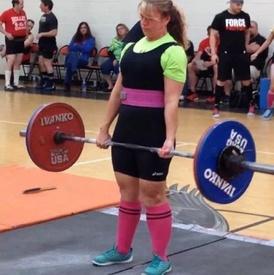More protein to lose weight faster?

therobinator
Posts: 832 Member
I am doing Insanity (started the last 4 weeks today), and I have been following the BeachBody recommendations for food intake (40% protein, 40% carbs and 20% fats). I am losing weight steadily. My BeachBodyy coach said that if I am very concerned about losing *weight* rather than just overall fitness, that I should increase my protein intake (I assume this comes at the expense of reducing my carb intake).
Can someone explain to me why this works? Like, what's the science behind it? Are there any drawbacks, such as energy loss from less carbs, or muscle loss from losing "weight" too fast (which I don't think would be the case due to the increased protein intake?).
And just for argument's sake and for example, what would happen if a person increased their carb intake instead (at the cost of reducing the protein intake)?
Thanks!!
Can someone explain to me why this works? Like, what's the science behind it? Are there any drawbacks, such as energy loss from less carbs, or muscle loss from losing "weight" too fast (which I don't think would be the case due to the increased protein intake?).
And just for argument's sake and for example, what would happen if a person increased their carb intake instead (at the cost of reducing the protein intake)?
Thanks!!
0
Replies
-
Here's a link to a site with some generic info on high-protein diets:
http://www.webmd.com/diet/guide/high-protein-diet-weight-loss0 -
bump0
-
Here's a link to a site with some generic info on high-protein diets:
http://www.webmd.com/diet/guide/high-protein-diet-weight-loss
Thank you. I read something similar to that (and a bunch of other stuff - lol) before posting. It's so generic that it doesn't say much. It also implies that the heightened protein will lead to eating less calories, which I am not looking to do. I am looking to redistribute my calories (staying at the same calorie level) to a more protein/less carbs plan. 0
0 -
When you eat carbs the carbs turn to sugar in your blood. This spikes your blood sugar so your body has to produce insulin to get rid of the sugar. Your body's muscles then turn their attention from burning fat to burning off the sugar you just gave it. So less carbs the more energy your body can give to burning fat instead of breaking down the sugar.
This is how I understand it, correct me if I am wrong guys.0 -
I have done it before and it works to some extent but I can't maintain it, it's like never feeling satisfied and after about 2 weeks I have to go back to a more normal diet. It's always harder on your kidneys to be ingesting large quantities of protein so if you do it just make sure you drink a lot of water. If you don't want to lower total calories then you'll have to eat more fat as well, it's really the only way to make up the difference.0
-
high protein diets that are excessive in protein (meaning more than 1 gram for every pound of bodyweight) will work short term but what you need to learn is that carbs and fat are not the enemy, refined carbs and saturated fats are. Learning what carbs are good will help you far more than a short term diet. This is a lifestyle change your gunning for not a sprint to the end of a 300 mile marathon. Slow carbs or good carbs are the way to go along with a diet rich in good fats with balanced proteins. Check out these links for better ideas of what to eat;
http://www.beachbody.com/category/michis_ladder.do
http://fourhourbodysupplements.com/2010/02/slow-carb-diet/list-of-slow-carb-foods/
the idea is to get a slow long term release of blood sugar making sure that the spikes are minimal so that there is no huge insulin response which in turn causes sweet cravings.0 -
check out marksdailyapple.com... I have eaten this way since August and lost over 60 pounds and feel incredible! good luck!0
-
I don't know if this is correct, but I'm a pretty smart cookie - lol....and it makes *total* sense to me. So, if my body doesn't have to worry about burning the carb sugar in my blood first, it will turn to the fats in my body next...*not* to the muscle, for it's energy?When you eat carbs the carbs turn to sugar in your blood. This spikes your blood sugar so your body has to produce insulin to get rid of the sugar. Your body's muscles then turn their attention from burning fat to burning off the sugar you just gave it. So less carbs the more energy your body can give to burning fat instead of breaking down the sugar.
This is how I understand it, correct me if I am wrong guys.
** Edited for spelling - guess I'm not that smart a cookie after all, eh? 0
0 -
yeah0
-
I am not trying to be a jerk by saying this, and I know you don't know me so it's understandible that you might assume that I am a total newb with -0- knowledge....but I know everything you said above, and that's how I eat now.....as balanced and clean as possible. I am just trying to understand *why* he told me what he told me, what the science is behind it, etc....and believe me, I don't trust his knowledge more than my own.high protein diets that are excessive in protein (meaning more than 1 gram for every pound of bodyweight) will work short term but what you need to learn is that carbs and fat are not the enemy, refined carbs and saturated fats are. Learning what carbs are good will help you far more than a short term diet. This is a lifestyle change your gunning for not a sprint to the end of a 300 mile marathon. Slow carbs or good carbs are the way to go along with a diet rich in good fats with balanced proteins. Check out these links for better ideas of what to eat;
http://www.beachbody.com/category/michis_ladder.do
http://fourhourbodysupplements.com/2010/02/slow-carb-diet/list-of-slow-carb-foods/
the idea is to get a slow long term release of blood sugar making sure that the spikes are minimal so that there is no huge insulin response which in turn causes sweet cravings. That's why I have not decided to (and probably won't) to follow his advice....I think my protein is plenty high enough as is, and will certainly need to be decreased when I hit my weight goal. I just want to make sure I am not going to lose muscle in the meantime (like one would if they are eating too little protein or just too little calories in general).
That's why I have not decided to (and probably won't) to follow his advice....I think my protein is plenty high enough as is, and will certainly need to be decreased when I hit my weight goal. I just want to make sure I am not going to lose muscle in the meantime (like one would if they are eating too little protein or just too little calories in general). 
** Edited: Gosh darnit I type too fast - typo, typo, typo!!! Aaaah! 0
0 -
*bump* I'm wondering about this too....I've read and seen so many conflicting theories....I'd like to know!0
-
Kind of but not quite, fat burning is more a function of overall metabolic rate as opposed to insulin production, the reason why high protein low carb works is that it cuts out a lot of the refined carbs that people eat causing a more stable blood sugar response meaning more fat burn. In an ideal world the blood sugar would stay the same across the board. Muscles use glycogen for energy but they can only store a limited amount, the rest goes to fat. The key is to get those muscles burning as much glycogen a they can then give it a quick boost for short term energy (choc milk post workout) and then allow the higher metabolic rate to burn the remainder of the glycogen as fat burnt to repair the muscles.When you eat carbs the carbs turn to sugar in your blood. This spikes your blood sugar so your body has to produce insulin to get rid of the sugar. Your body's muscles then turn their attention from burning fat to burning off the sugar you just gave it. So less carbs the more energy your body can give to burning fat instead of breaking down the sugar.
This is how I understand it, correct me if I am wrong guys.0 -
So would you say that if I don't eat *any* refined carbs, it would be as effective as upping my protein?Kind of but not quite, fat burning is more a function of overall metabolic rate as opposed to insulin production, the reason why high protein low carb works is that it cuts out a lot of the refined carbs that people eat causing a more stable blood sugar response meaning more fat burn. In an ideal world the blood sugar would stay the same across the board. Muscles use glycogen for energy but they can only store a limited amount, the rest goes to fat. The key is to get those muscles burning as much glycogen a they can then give it a quick boost for short term energy (choc milk post workout) and then allow the higher metabolic rate to burn the remainder of the glycogen as fat burnt to repair the muscles.0 -
Yes just make sure that you eat enough protein to get to your goals and when in doubt a little more can not hurt. My goal is to maintain and build upon my current muscle mass so I eat 1 g for every pound of bodyweight, for a woman looking to maintain or get a little more roughly 100g/day would suffice.0
This discussion has been closed.
Categories
- All Categories
- 1.4M Health, Wellness and Goals
- 398.5K Introduce Yourself
- 44.7K Getting Started
- 261K Health and Weight Loss
- 176.4K Food and Nutrition
- 47.7K Recipes
- 233K Fitness and Exercise
- 462 Sleep, Mindfulness and Overall Wellness
- 6.5K Goal: Maintaining Weight
- 8.7K Goal: Gaining Weight and Body Building
- 153.5K Motivation and Support
- 8.4K Challenges
- 1.4K Debate Club
- 96.5K Chit-Chat
- 2.6K Fun and Games
- 4.8K MyFitnessPal Information
- 18 News and Announcements
- 21 MyFitnessPal Academy
- 1.5K Feature Suggestions and Ideas
- 3.2K MyFitnessPal Tech Support Questions






